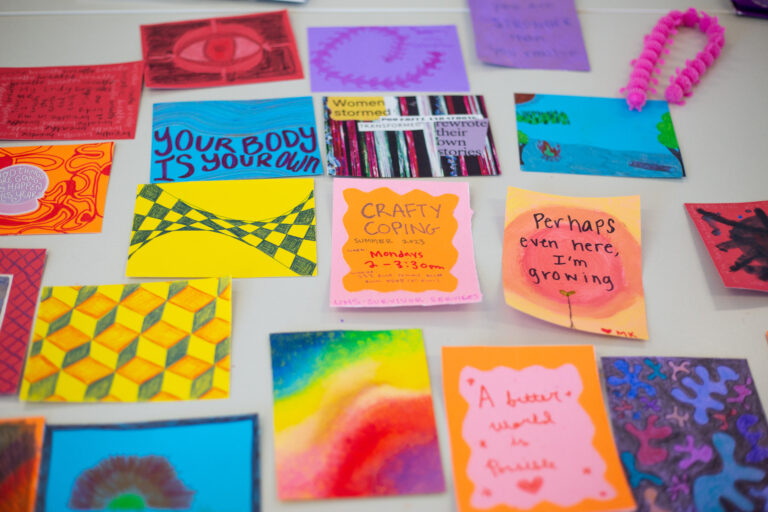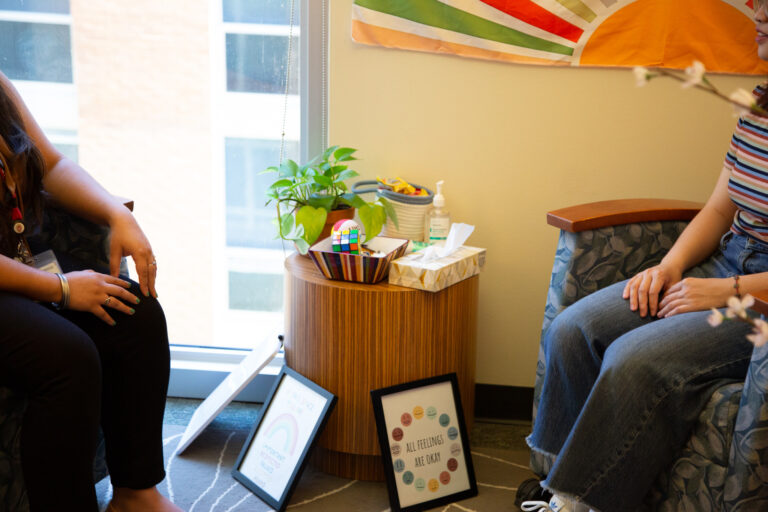Let's Talk for Student Survivors of Sexual & Relationship Violence
Survivor Services Let’s Talk will resume in September
Let’s Talk is a no-cost, informal, confidential consultation on campus and virtually. Attending a Let’s Talk session can help you gain insight, support, and information about other resources available to student survivors of sexual and relationship violence.
Support Groups for Survivors
Confidential, trauma-informed support groups provided by Survivor Services mental health professionals.
This is an accordion element with a series of buttons that open and close related content panels.
Drop-In Crafty Coping Community for Survivors
This is a drop-in space for UW-Madison student survivors to connect with peers and offer mutual support in a confidential and safe environment. The group facilitators will foster a space that is open and affirming for all members while guiding members through experiential-, sensory- and movement-based coping skills. Group will focus on navigating the impact of trauma experiences through connection and skills to support post-traumatic growth. This group is specifically for UW-Madison students who have experienced sexual assault, dating/domestic violence, sexual harassment, stalking, and/or childhood sexual abuse. Of note, you are welcome to drop-in to this group.
Wednesdays: 2:30 PM – 4:00 PM (in-person)
Location: 333 East Campus Mall, 7th floor, room 7001
Group Leaders: Alex Little, MSW & Annie Bruns, APSW
Drop-In Virtual Support for Survivors
This is a space for UW-Madison student survivors to connect with peers and offer mutual support in a confidential and safe environment. Group facilitators are mental health professionals that foster a space that is open, affirming, and connecting for all members. Group will focus on the impact of having experienced trauma and skills/supports to support post-traumatic growth, with some boundaries placed around sharing narratives about traumatic experiences. This group is specifically designed for UW-Madison students who have experienced sexual assault, dating/domestic violence, sexual harassment, stalking, and/or childhood sexual abuse.
Drop-In Virtual Support for Survivors will return in September

Individual Counseling Services for Survivors

A trauma-informed, collaborative, and strengths-based approach to support healing and post-traumatic growth.
Survivor Services does not have an explicit session limit. Mental health staff work with students to determine the appropriate care plan based on individual goals.
Confidentiality
Confidential means that—as allowable by law—the information survivors share with our victim advocates will not be disclosed to anyone—including law enforcement, campus authorities or parents—without the explicit written permission of the student victim/survivor. Read the UHS statement on confidentiality for victims of sexual violence.